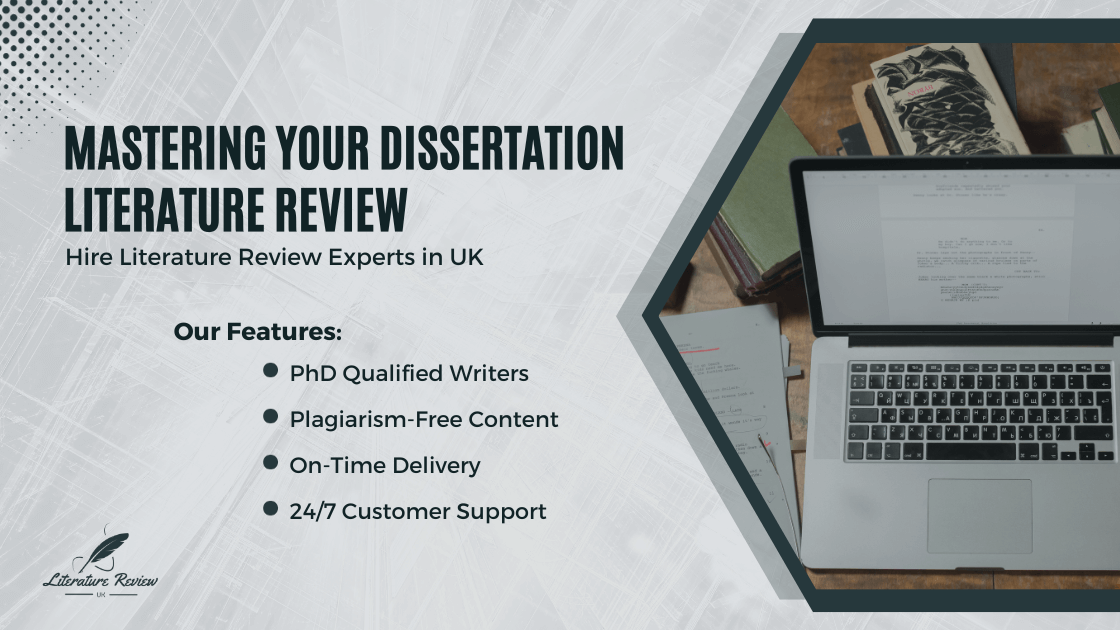
Your dissertation, the culmination of years of hard work and dedication, stands as a testament to your academic prowess. But there’s one critical element that can make or break your dissertation’s success: the literature review. It’s the compass guiding your research, the foundation of your arguments, and the benchmark for excellence. In this comprehensive guide, we’ll unlock the secrets to crafting a winning literature review for your dissertation, using real-life examples and expert tips to navigate this crucial stage of your academic journey.
Chapter 1: Demystifying the Literature Review in a Dissertation
What is a Literature Review in a Dissertation?
A literature review is a meticulous exploration of existing research and scholarly work related to your dissertation topic. It not only establishes your credibility as a researcher but also lays the groundwork for your original contribution to the field.
Chapter 2: The Anatomy of a Literature Review
1. Introduction: Setting the Stage
Your literature review begins with a compelling introduction. Outline the scope, significance, and objectives of your review. Use keywords like “literature review dissertation” and “literature review thesis example” to demonstrate your focus.
2. Organizing the Literature
Break down the vast body of literature into manageable sections. This helps readers follow your argument and identifies the key themes and trends. Use “literature review in a dissertation” and “literature review master thesis” to categorize your sources effectively.
3. Critique and Synthesis
Go beyond mere summaries. Critique each source’s methodology, strengths, and weaknesses. Then, synthesize the findings to showcase the evolving conversation within your field.
4. Identifying Research Gaps
Highlight areas where existing research falls short. This is where you signal your contribution to the field, setting the stage for your original research. Keywords like “how to write literature review dissertation” and “literature review dissertation example nursing” are essential here.
5. Conclusion: Bridging the Past and Future
Conclude your literature review by summarizing key takeaways and emphasizing the importance of your research. This section should pave the way for your dissertation’s unique contribution.
Chapter 3: Navigating the Writing Process
1. Start Early
Begin your literature review early in your dissertation journey. This allows ample time for research, analysis, and revisions.
2. Selecting the Right Sources
Use reputable academic databases and libraries to find peer-reviewed articles, books, theses, and dissertations. “Literature review dissertation proposal” can be an effective search query.
3. Stay Organized
Maintain a meticulous record of your sources. Include bibliographic information, key findings, and your critical notes. Citation management tools like EndNote or Zotero can be invaluable.
4. Drafting and Revising
Start by summarizing each source concisely. Then, progressively build your review, connecting sources and weaving a cohesive narrative. Revise tirelessly to improve clarity and coherence.
Chapter 4: Leveraging Real-Life Examples
Example 1: Nursing Dissertation Literature Review
Let’s delve into a nursing dissertation literature review example to illustrate effective practices. By analyzing the work of previous researchers in the field, you can identify gaps and areas of interest for your own study.
Example 2: Dissertation Proposal Literature Review
Reviewing a literature review within a dissertation proposal can reveal how researchers establish the foundation for their proposed study. This demonstrates how your literature review can act as a roadmap for your future research endeavors.
Chapter 5: Seeking Expert Guidance
The Power of Dissertation Assistance Services
If you find yourself grappling with the complexities of your literature review, don’t hesitate to seek expert help. Dissertation assistance services can provide valuable guidance, ensuring your literature review is comprehensive, well-structured, and academically sound.
The Benefits of Professional Guidance
- Tailored Support: Experts can tailor their assistance to your specific needs, whether it’s in the form of guidance, feedback, or even a complete literature review.
- Time Efficiency: Save precious time and reduce stress by leveraging the expertise of professionals who understand the intricacies of dissertation writing.
-
Improved Quality: Professional guidance can elevate the quality of your literature review, enhancing your chances of academic success.
Chapter 6: The Journey Towards Excellence
Writing a winning literature review for your dissertation is not just a requirement; it’s your opportunity to make a significant scholarly contribution. It’s about guiding your readers through the intricate web of research in your field and illuminating the path forward. Armed with this ultimate guide and the power of expert assistance, you’re well-equipped to embark on this transformative journey.
Remember, your literature review is the beacon that illuminates the way for your dissertation’s success. So, embrace the challenge, seize the opportunity, and let your literature review shine as a testament to your academic prowess. With dedication, perseverance, and the right resources, your dissertation will stand as a masterpiece, a testament to your journey towards excellence.




